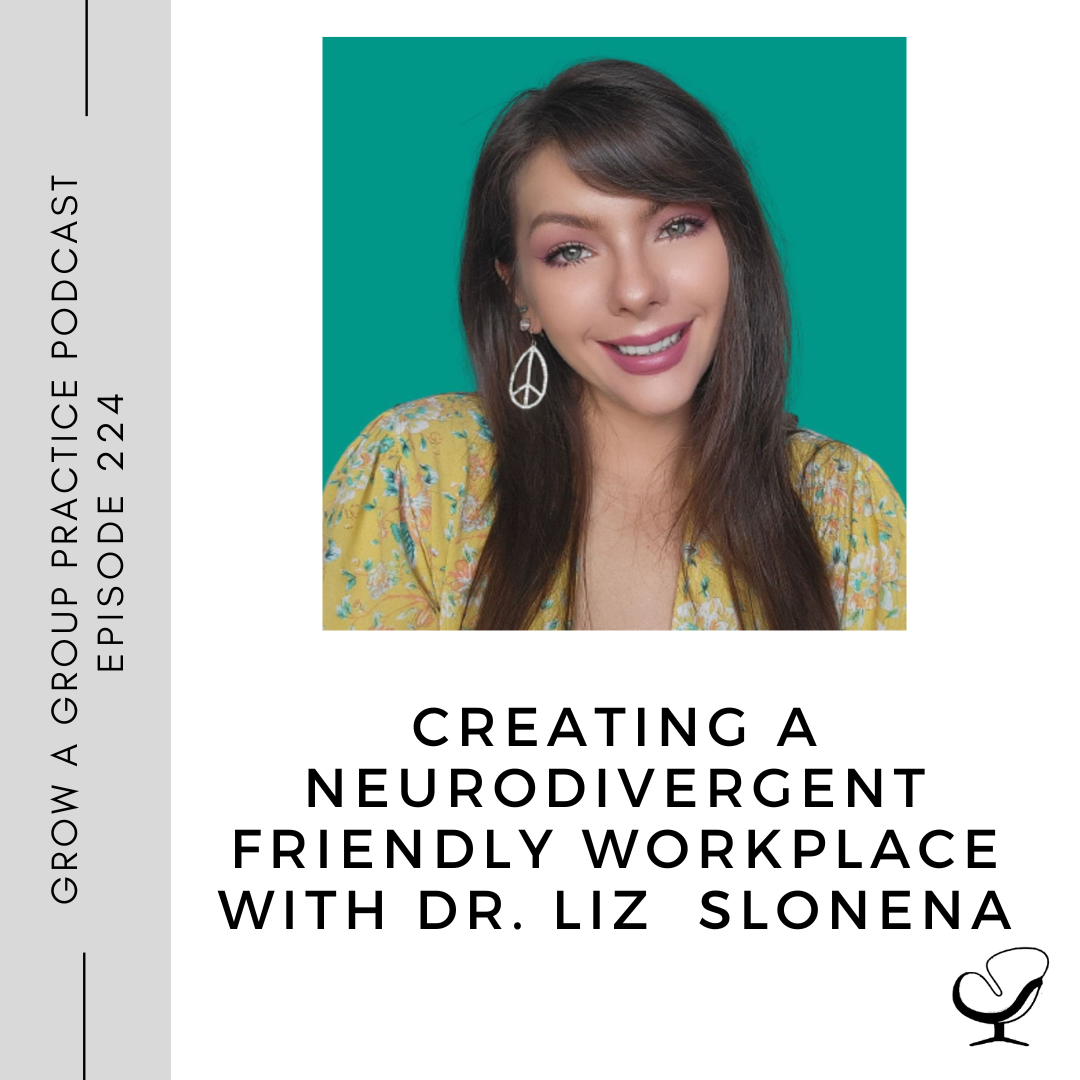Creating a Neurodivergent Friendly Workplace

In This Podcast
- What is neurodivergence?
- What to avoid
- Creating a supportive work environment
- What to do in your practice
What is neurodivergence?
Neurodivergence holds a plethora of different definitions, so it is an umbrella term, and it could include;
- Autism
- ADHD
- OCD
- Dyslexia
It is a different lived experience [because] our operating systems are operating differently, like a Mac versus a PC. (Dr. Slonena)
If you want to be neuro-affirming, you can recognize that your lived experience as a neurotypical person is different from someone else’s who is neurodivergent. Therefore, be mindful that understanding these experiences comes from knowing that there are so many other ways that people perceive the same reality.
Take the time to learn and hear, and listen deeply, to neurodivergent voices and how we can really come together as a community rather than just being split apart and siloed off, because yeah, there’s going to be a lot of folks out there that you may never know are divergent because of masking, and why not make the world a little bit more comfortable? (Dr. Slonena)
What to avoid
Some neurotypical people may accidentally invalidate the experience of people who are neurodivergent since it’s something that isn’t often seen or interacted with openly.
Be mindful of microaggressions, especially claiming that “everyone’s a little bit on the spectrum” or has “some type of ADHD”.
"This is so invalidating because that is not true. When it comes down to it, everyone has executive functioning strengths and weaknesses … Again, it’s a different lived experience that [where] just claiming that you have a trait or maybe you’re a little bit distractible does not mean that you either meet the criteria, or even identify as such." - Dr. Slonena
A lot of neurodivergent people’s lived experiences include invalidation from others and/ or chronic masking to perform in a neurotypical world, which can be incredibly exhausting.
Creating a supportive work environment
1 – Communication needs: neurodivergent communication needs can be different, so for your staff and your clients, it is important to understand how to communicate with them so that they both understand and feel respected.
2 – Different learning styles: ask your staff; “How do you learn best? How can I best support you?” and take their feedback onboard.
3 – Be mindful of sensory differences: many neurodivergent people are more sensitive to lights and sounds, so consider giving the option of different light sources or ways for them to change their environment within the office that is supportive of their needs.
4 – Give ongoing feedback and communication: keep your door open so that your staff can come to you and feel safe and comfortable to do so, whenever they have something that they would like to share with you or to discuss with you.
What to do in your practice
Whether your staff is neurotypical, neurodivergent, or a mix of the two, it is great for your business and their happiness and productivity that you regularly check in with them.
- Make use of templates or systems
- Encourage staff to create their own templates/systems that work
- Simplify things as much as possible: have a big, shared calendar that everyone has access to so that everyone can see what’s available
Ask yourself and your team
- How do you best communicate? Email, text, phone, Slack, in person, etc?
- What are your sensory needs to help you be comfortable and at your best?
- How are the current procedures and systems helping, harming, or hindering the business in any way?
- How do you think these things could be improved?
- How do you best receive feedback?
"I do recommend experimenting to see what does work for you. There’s some really great products out there … I would encourage you to have conversations about this to really learn from others what systems work and don’t, either individually or within the practice itself." - Dr. Slonena